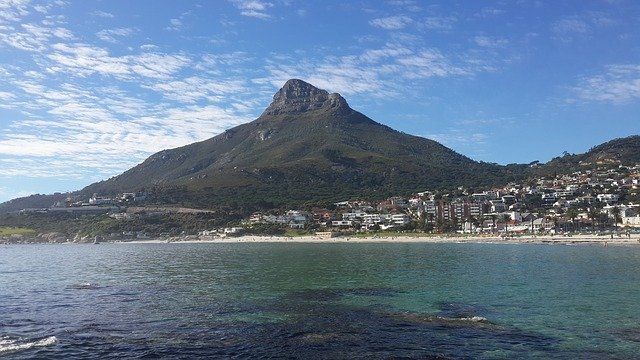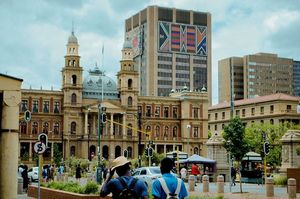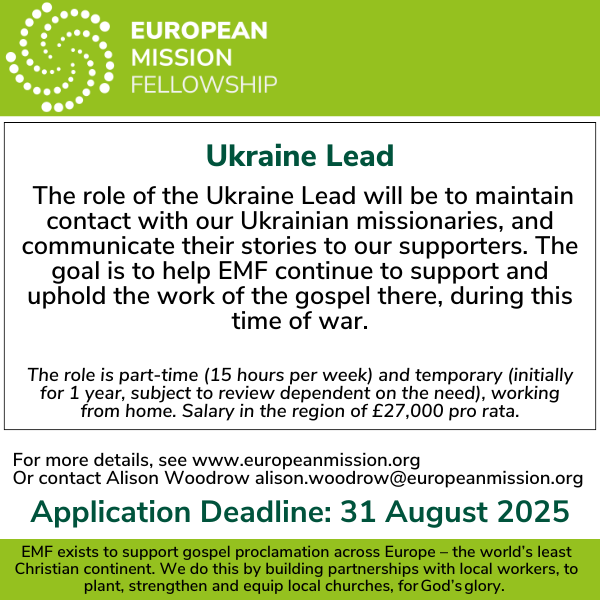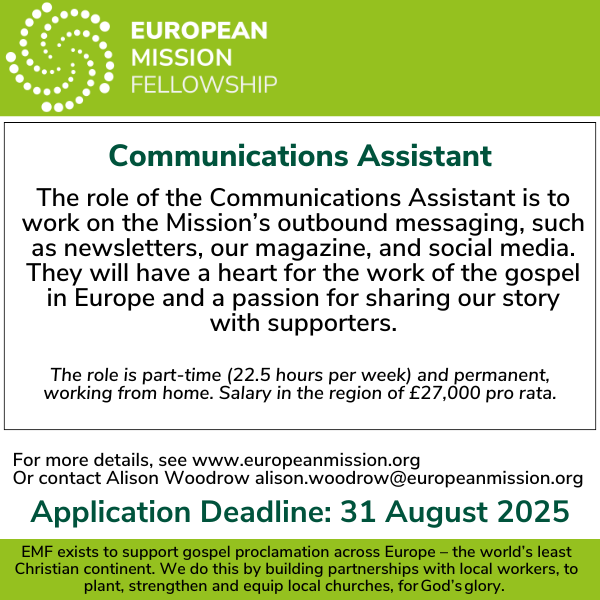Although Portuguese Catholics predated the Dutch in landing at the Cape of Good Hope, the history of the gospel in South Africa really began with the arrival of the Dutch in 1652. These were followed by the French Huguenots (1668) and by early German settlers. Most of these settlers were Protestants, while the Dutch and French were Calvinists. The Dutch Reformed Church (DRC) became the established church in South Africa. Thus, as the colony expanded during the eighteenth century, so did the DRC. However, growth was confined to the white settler congregations.
Divisions
By the end of the nineteenth century, the influence of Andrew Murray, a prominent South African DRC minister who had trained in Aberdeen and Utrecht, had injected a new evangelicalism into the DRC. This shaped its theology and piety at a critical time when it was under threat from theological liberalism. It also stimulated a widespread mission to the non-white communities in South Africa.

Such changes were not welcomed by all. The liberals attempted to wrest control from Murray and other Evangelicals. This strife was one reason for the ‘great trek’ of Afrikaners northwards. The trek became the means of transmitting the gospel and the Reformed faith to the hinterland. As the interior was colonized, the Baptists, Presbyterians and Methodists also began to plant churches there.
Struggles
During most of the twentieth century, the churches in South Africa have grappled with a number of adverse factors. Most prominent of these has been the political reality of apartheid. Although apartheid has now been formally abandoned, churches continue to smart under its lingering effects.
For example, many churches, while sincerely desiring to adopt a multiracial approach, continue instinctively to polarise along racial lines, since Christians from different ethnic groups remain suspicious of each other.

Whereas an average ‘white’ church is well situated, with comfortable buildings, a reasonably well-trained and cared-for pastor, and a well-educated membership, an average ‘black’ church would have a lowly building, a poorly-educated pastor and people, and would often be unable to support its pastor properly.
Yet another factor is the emigration from the country of white professionals, some of whom are Christians of Reformed convictions. This is depriving the South African church of potential church leaders. A well-known minister has predicted that unless the tide of emigration is stemmed, most of the white churches will consist of old people in ten to fifteen years.
As in many other countries, increasing secularism makes the task of evangelism even more difficult. Many householders have erected high steel fences around their homes because of the current crime wave. These constitute literal barriers to accessing the occupants with the gospel.
Liberalism remains a threat to the gospel, its roots being deeply established in the DRC. Many friends of political ‘liberation’ have espoused (Marxist) liberation theology. The ‘Zionist movement’, which blends Christianity and traditional African religion, has had a magnetic influence on millions of black people.
Remnant
This negative assessment may give the impression that there is no true church here in South Africa. But that would be far from the truth. There is a remnant in South Africa saved and sustained by grace, through which God is doing marvellous things. It is not big. Operation World generously puts its size at just over 16% of the total population, but this is highly disputable.
If the number of true Christians is low, the number of Christians and churches holding explicitly to the Reformed faith is even lower. These doctrines are viewed with suspicion, especially by black people, who associate Calvinism with apartheid. At present, the doctrines of grace are taught by Reformed Baptist, some Presbyterian and a few ‘Church of England in South Africa’ churches. In addition, there are one or two independent churches that are strongly Calvinistic, and Calvinistic individuals scattered among other Christian groups.
Pastors
With few exceptions, theological training is liberal. Even where a seminary has escaped the influence of modernism, it does not usually aim to produce preachers. Instead, many students go to Bible College to be trained as ‘Christian workers’ and ‘resource persons’ for interdenominational and para-church organisations. Many churches are without well-trained preachers and pastors.
A few serving pastors provide excellent theological leadership, but the majority of pastors are pragmatic in approach. They often fall back on a shallow charismatic agenda or are politicised in their message and expectations.
There are, nevertheless, some doctrinally sound ministerial conferences. There is also good Christian literature available. These two influences help to remedy what is lacking in most churches and theological colleges.
The Evangelical and Reformed conference that meets at Skogheim, the Grace Ministers’ conference, and one or two other conferences all enjoy a good reputation among a wide spectrum of evangelical Christians and ministers. These conferences, along with the few faithful Evangelical and Reformed churches are, humanly speaking, our only hope for the survival of South African evangelicalism and for a future reformation.
A plea
This brief survey shows that marauding spiritual lions have invaded the church in South Africa. There is a shortage of solid preaching and little theologically sound leadership. A highly competitive economic climate is making new demands upon Christians. This, and the breakdown in the moral fabric of society, threatens to sap Christians of all spiritual vitality.
Furthermore, South Africa, once at the forefront of missionary enterprise in Africa, is herself a mission field. What of the large black and Asian constituencies still ignorant of the gospel? There are few rising to meet the challenges. The time is ripe for labourers to come from elsewhere to help South Africa.
And here is my plea. Please pray for South Africa! She needs preachers of the everlasting gospel and she needs revival. She needs a more racially integrated church. She needs the doctrines of grace to be disseminated throughout the nation. Only then will she be able to face effectively the challenges of this new millennium.







